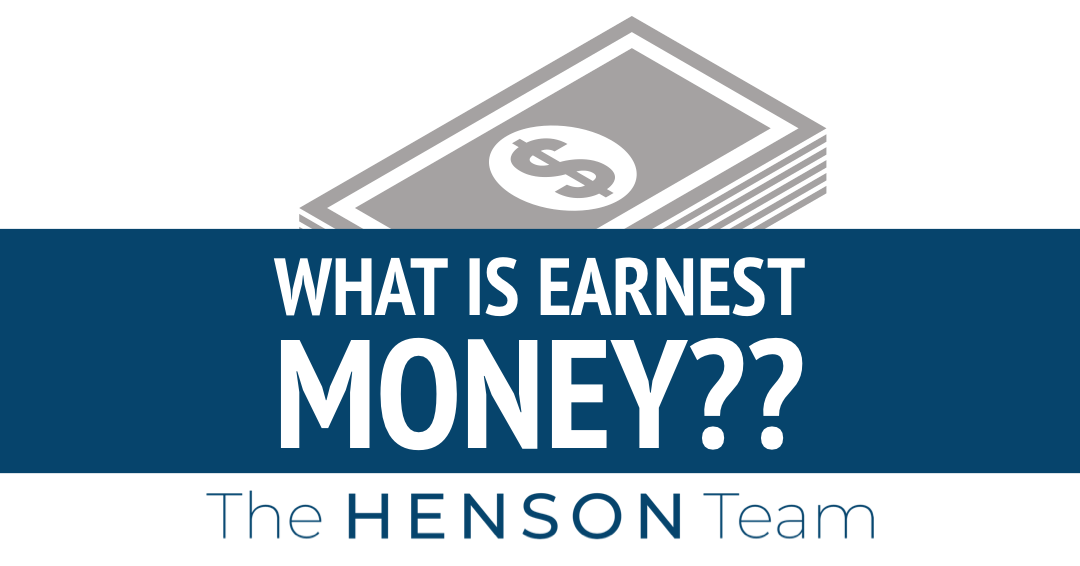3 minute read
Buying and selling a home can be confusing. There are so many terms it seems like people just expect you to know when you are buying or selling a house, but the reality is, the average person only buys 2-3 homes in their entire lifetime. You shouldn’t be expected to know it all. That’s what we are here for!
It would be great if someone just took care of everything for you. However, what we’ve found is, most people don’t just want you to take care of it. You want guidance, but you also want to be a smart shopper. So, let’s talk about earnest money!
What even is earnest money?
Earnest money is cash put up by the buyer when they make an offer. Once an offer is accepted, it takes about 30-45 days to seal the deal, and there are inspections, appraisals, and lots of paperwork and waiting to be done before closing. So, if the seller is going to take their home off the market, they want the buyer to have some skin in the game.
They don’t want their buyer jumping ship for the hottest new listing that catches their eye. It doesn’t just go into the seller’s account though like some sort of down payment. Earnest money is held by a 3rd party such as the title company or closing attorney in an account and held onto until the day of closing, and is usually due asap after making an agreement to purchase property.
How much earnest money do I need?
Earnest money differs depending on area and price point of the home. In some cases the buyer only needs about $500-$1000 to appease the seller, but in most cases here in middle TN/greater Nashville, sellers want to see around 1% of the purchase price of the home. So, on a $400,000 home, the seller will expect to see about $4,000 for earnest money.
Will I get my earnest money back if we back out of buying?
Well, that all depends. If you back out because you’ve changed your mind, it’s going to be extremely difficult to get your earnest money back. It’s the very reason the sellers want that earnest money in the first place. If you back out because you change your mind, the seller will receive the earnest money.
However, there are contingencies to be fulfilled. Which means, the offer should be contingent on an inspection. If the home has major issues which come up on the inspection, you can request for the repairs to be made, ask for a price reduction after getting repair quotes, or you can back out without any penalty.
Basically the same thing happens for the appraisal. The bank will require an appraisal to verify the market value of the home. If the home appraises for less than the purchase price, you can negotiate for a lowered price, choose to pay the difference yourself, or you can back out without penalty.
Another reassuring thing is, if something crazy happens like losing your job and you’re no longer eligible for financing, you can back out and get the earnest money back. Writing a financing contingency into the offer ensures if the unthinkable happens, you aren’t locked into buying the home when you no longer qualify for the money.
So where does the earnest money go?
One of the questions we get asked ALL THE TIME. So, never be afraid to ask! When you close on the home and everything is finalized, the earnest money applies to the amount due at closing (i.e. closing costs or down payment), or it will apply to the loan amount.
We know, that’s a lot to know and it’s only one small thing. We know how confusing and frustrating it can be, and we would never want you to walk through the process alone or feel like you can’t ask any questions. Buying and selling a home is a BIG DEAL, and you deserve a guide with the heart of a teacher. Don’t be confused…call us now!

